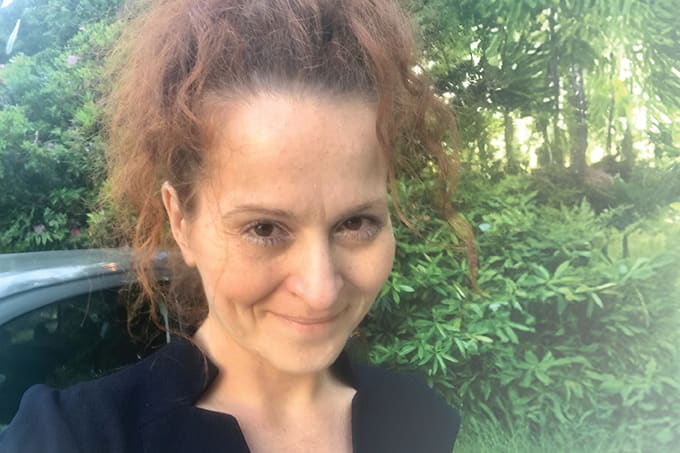
Ten weeks of war in Ukraine has transformed the reality of life and healthcare in the country. Officially, between February 24 and May 1, 2022, the war caused over 6,500 civilian casualties; however, the true toll is likely much higher. The first 68 days of war brought enormous damages – at least 411 educational institutions, 231 healthcare facilities, 173 factories and warehouses, thousands of residential buildings, and hundreds of schools and childcare facilities were impacted.
Damaged infrastructure and continuous military attacks focused people’s lives mainly on survival – but the armed attacks, stresses, and injuries affected their health as well, provoking various diseases, complications, and recurrences. With many of medicine’s decisions based on laboratory results, how do laboratories work during the war? How do laboratory professionals survive and arrange their lives? Here, we explain how our lab, CSD Laboratory, adapted to the challenges of the war – and how digital pathology helped us along the way.


Restricted access to healthcare and laboratory facilities
The number of hospitals, laboratory offices, and services dramatically decreased during the first weeks of the war. Armed attacks in the southern, eastern, and northern regions of Ukraine resulted in massive evacuations and the need to redistribute laboratory facilities. Many labs in Kharkiv, Kherson, Sumy, Melitopil, Maryupil, and Kyiv closed down. By the end of April, CSD Laboratory had lost six and closed about 20 of our 60 laboratory offices.
Laboratory practice in Ukraine was severely affected by the alteration of the country’s healthcare system and the massive relocation of the population. About 6.5 million people moved within the country, mostly to western regions; another 4.24 million went abroad. Many hospitals halted their activities or evacuated their facilities and staff, which enormously reduced the number of orders for laboratory testing. Unsurprisingly, the number of cases we deal with at CSD Lab has significantly decreased. Before the war, we processed about 4,300 histological and 5,000 cytological cases per week; after 10 weeks of war, those numbers are four times lower.

How laboratories are adapting to war
The redistribution of laboratory facilities seemed to be a good solution for protecting staff and arranging fully operational laboratories in western Ukraine. Operating there allowed us to handle the increasing need for diagnostic testing, especially as other laboratories were forced to close.
Next, international cooperation brought essential benefits to Ukrainian laboratory staff by supporting them financially, educationally, and professionally. For instance, the European Society of Pathology supported CSD Lab and offered free membership to all Ukrainian pathologists. Many other organizations and experts worldwide are helping Ukrainian healthcare professionals to find their patients consultations, treatment, and psychological support. Bioptická Laboratoř, operated by Michal Michal in Pilsen, has helped provide Ukrainian patients with necessary molecular testing, including next-generation sequencing for oncology and noninvasive prenatal testing; the laboratory has also offered Ukrainian staff free consultations and advanced training.


Digital solutions to wartime problems
Before the war began, CSD Lab provided about 30 percent of all oncological diagnoses in Ukraine. Our pathology department comprised 27 pathologists with a high level of expertise in different fields, including breast, soft tissue and bone, gastrointestinal, genitourinary, gynecological, dermatopathology, neuropathology, hematopathology, and more. Active networking, continuous education, and international collaboration became hallmarks of the CSD Lab team, earning the trust of physicians and patients.
Although we arranged fully equipped laboratory hubs in Kyiv and Lviv, there were still challenges in laboratory workflow. The distribution of experts in Kyiv and Lviv was uneven; for example, no dermatopathologists moved to Lviv, so we needed to sort and transport specimens according to specialists’ locations – and that is where digital pathology offered a great solution.

CSD Lab was the first laboratory in Ukraine to implement digital pathology for everyday practice. Since 2016, CSD Lab has been using a digital scanner to obtain whole-slide images for further use, storage, and sharing. Digital slides became a key part of our workflow during the war, connecting not only pathologists in different Ukrainian cities, but also colleagues from Europe and elsewhere. Our main limitation, though, is our scanner has a 12-slide tray, making massive scanning impossible. In war, time is crucial, so we are currently trying to procure an additional digital scanner.
If you have an extra digital scanner, please consider donating it to CSD Lab. Monetary donations to support the expansion of digital pathology across Ukraine are also very welcome – please contact us at cr@csd.com.ua to help.




